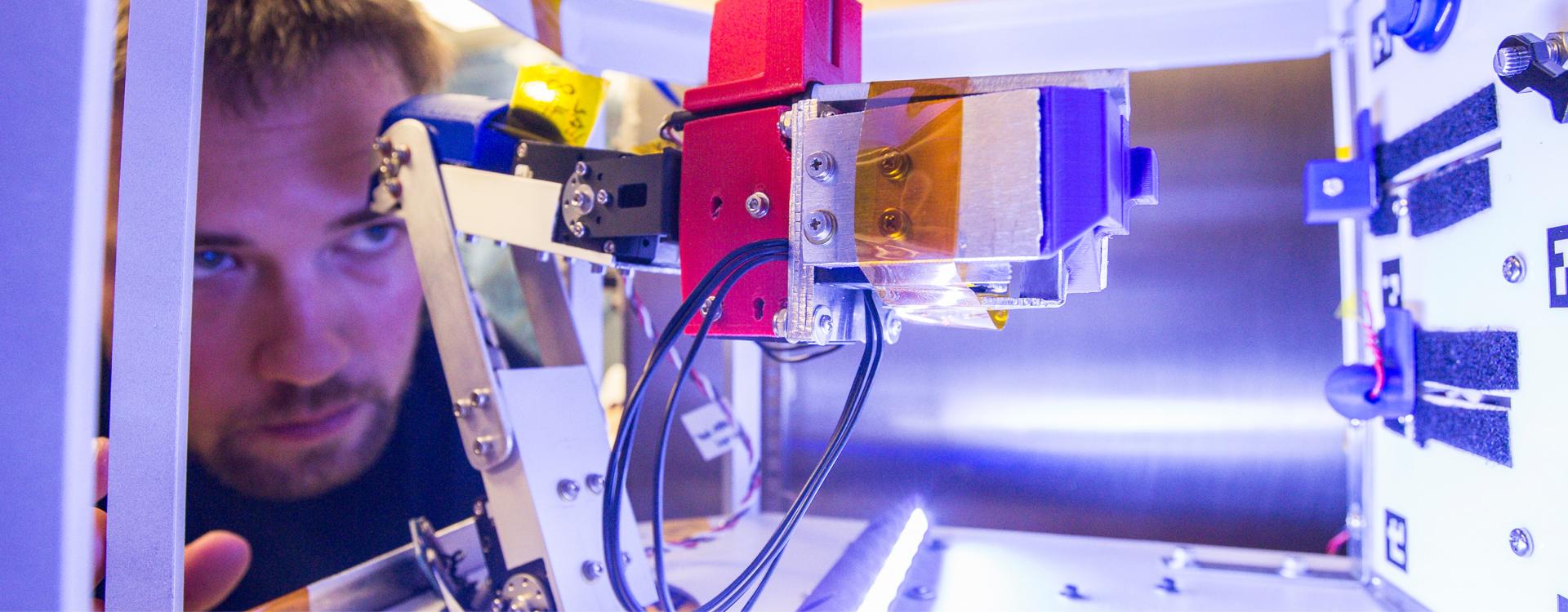Durham Tech relaunches Electric Line Program
The Durham Tech Electric Line program is not new to the College, but it recently was revamped.
“We knew we had a good program, but we wanted a great program. We grew the program to 14 weeks instead of 10 and included an underground work portion to the already in place above-ground work,” said Danielle Knockum, Instructor of Business, Entrepreneurship and IT, who oversees the Electric Line program. “We also knew how much the program benefits our community – the community at large and the community of students at Durham Tech that are looking for a solid trade.”

Students learning the trade spend 10 weeks on Durham Tech’s Northern Durham Center campus. The final four weeks of class they work on the grounds of the old Chapel Hill airport. While in Durham, the students learn the above-ground portion of the class and climb the two sizes of practice poles, the shorter of which is 12 to 15 feet while the taller is 40 feet in total. At the airport, the students learn the underground portion of the trade doing things like splicing wires.
“We are currently on the Durham Tech campus and climbing poles,” said Colin White, a Durham Tech student in the program. “The short poles are used to learn secondary skills, while the tall poles we practice climbing and working on lines. The lines are dead, but we get the practice.”
The program is free to students, thanks to a grant from Duke Energy. Duke Energy provided the grant to Durham Tech to diversify the qualified employee pool. A component in the grant specifies that women and minorities are priority.
White shared that he ended up at Durham Tech because he heard about the program while considering attending another college. He heard the Durham Tech program was strong and that he could attend for free. Those things solidified his decision to come to Durham Tech. He added “plus, life is about trying things.”
The program at Durham Tech is intense and comprehensive.
“Our students learn the whole job while going through the course. They even come out with their commercial driver’s permit license because that is required and the exam must be passed before students can enter the electric line program,” Knockum said.
As part of getting their CDL, students drive bucket trucks on campus to prepare for the job.
The electric line classes at Durham Tech campus run from 8:30 a.m. to 4 p.m. Monday through Friday. The class is divided in half. Half the class is traditional, with the students doing classwork, while the other half is on the poles and hands-on. Currently the physically challenging class has 10 students with a max of 12 allowed.
“You build a community with the other students in your class because you are all out there sweating it out while learning a very dangerous, but necessary trade,” White said. “It can be scary up there. We are free climbing. The instructors are good. They definitely grind the material into your brain.”
White’s classmate, Anthony Jeeter reiterated the idea that the work is strenuous both mentally and physically and that the instructors are supportive.
“Sure, I was nervous [going up] the first time, but after the first time the nerves calm down,” said Jeeter. “We are working with dead wires, but the rest of the experience is real life. The instructors want us safe and encourage us to treat each situation as if it is live.”
Knockum shared that the profession will see a large retirement rate between 2026 and 2035 as current lineman begin to age out. This, she says, will give the Durham Tech students a chance to get in and have a long career.
“We are proud of the electric line program we have at Durham Tech and believe the learning of this trade is generation-changing,” Knockum said. “The students come out of the course debt-free thanks to the grant from Duke and start out making $25 to $30 an hour. Completing the course can mean financial security and that can change a life.”

